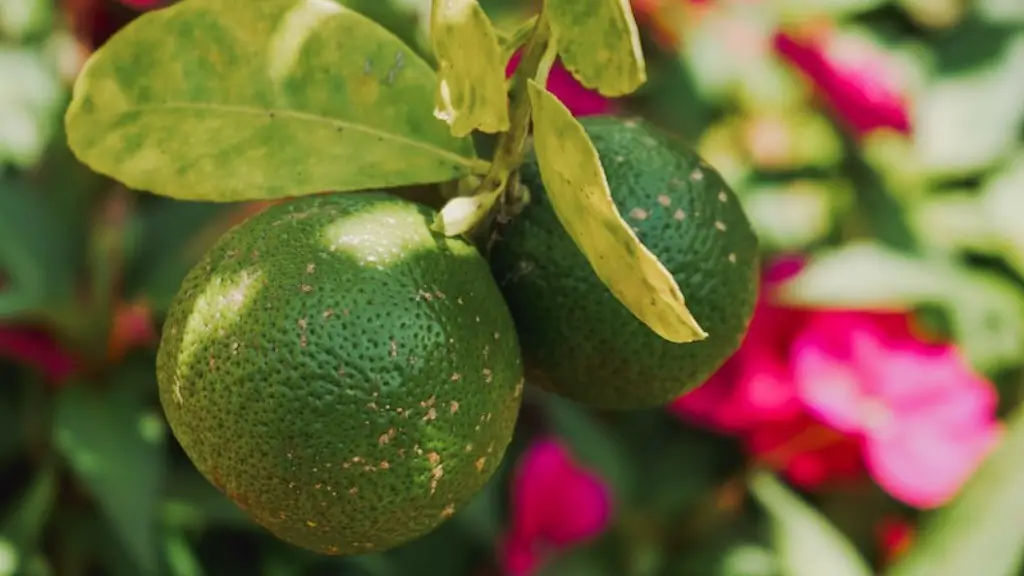Not Enough Sunlight
Avocadoes are touted as one of the most healthful foods, with their rich source of oleic acid, dietary fiber, healthy fats, vitamins, minerals, and antioxidants. Bearing fruit is what avocadoes trees do, yet many times they don’t seem to do that. If you are wondering why your avocado tree is not bearing fruit, the main culprit may be not enough direct sunlight.
Avocadoes need sunshine, the equivalent of full sun, six to eight hours a day. If the tree is not in a sunny location, it will not be able to photosynthesize and will not produce a healthy crop. If it receives little or no sunlight, it might not bear any fruit at all. Furthermore, if the tree is planted in a location that is exposed to strong winds, that can also have an effect on the size and quality of fruit produced, as the wind can cause the flowers to dry out and fail to fruit.
Seedling Issues
Another potential reason for lack of fruit on an avocado tree is that it is a seedling. Most seedling trees will take 5 to 8 years to bear fruit, since they grow slowly and need time to develop strong root systems. For seedlings, watering and fertilization also play a crucial role. It is important to water your avocado tree on a regular basis and feed it with a balanced fertilizer throughout the year. It is also recommended to prune the tree in order to enhance air circulation and improve fertility.
Avocadoes are self-fertilizing plants, meaning they can fertilize themselves.However, in order to get the best results, it is recommended to fertilize them with a high-quality, low-nitrogen fertilizer every month from spring to fall and then switch to a higher-nitrogen fertilizer during the winter months. Also, addingcompost to the soil can help improve fertility.
Climate Conditions
The climate in your area can also affect the ability of an avocado tree to bear fruit. Some types of avocados do not tolerate extremely low temperatures, so if the weather gets too cold, the flowers may not develop properly and fail to produce fruit. Additionally, if your region has an extremely wet season, the flowers may not be able to withstand the humidity and thus not form fruit.
Therefore, it is important to choose an avocado variety that is suited to the climatic conditions of your region. This can be determined by looking up which varieties do well in your area or consulting with your local extension office. It is also important to provide protection for your tree during cold weather or frosty nights.
Soil Requirements
The soil in which your tree is located can also affect its ability to bear fruit. Avocado trees need well-drained soil that is high in organic matter. Heavy, clay soils can lead to poor drainage and root rot, thus inhibiting the tree’s growth and ability to produce fruit. If the soil is too sandy, there may be insufficient moisture and nutrients for successful fruit production, thus leading to fruitless crops.
Therefore, it is essential to check the type of soil you have and to make sure that it is suitable for your avocado tree. If necessary, add organic matter and mulch to ensure optimal soil health. Additionally, it is essential to water your tree on a regular basis, especially during the dry season, in order to ensure healthy growth and fruiting.
Pest and Disease Problems
Pests and diseases can also cause an avocado tree to fail to bear fruit. There are a few types of insects, such as whiteflies, mealy bugs, and scale, that can feed on an avocado tree and weaken it, thus impairing its ability to produce fruit. Additionally, certain fungus and bacterial diseases can cause serious damage to the tree’s root system and lead to fruitless crops.
It is essential to monitor your tree for signs of pests and diseases so that you can take prompt action to control them. Insecticides and fungicides can be used to treat pests and diseases, and it is important to follow the instructions of the product you are using carefully. Furthermore, it is recommended to prune the tree regularly in order to promote healthy growth and reduce the chances of disease.
Nutritional Deficiencies
An avocado tree may also not produce fruit due to nutritional deficiencies in the soil. Avocados need adequate amounts of nitrogen, phosphorus, and potassium in order to produce a healthy crop, and if these elements are not present in sufficient quantities, the tree may not bear fruit. Additionally, avocados need soil with a pH of 6.0-7.0 for optimal growth, otherwise the tree is less likely to produce fruit.
If you suspect a nutrient deficiency, it is a good idea to have the soil tested. Once you know which nutrients are lacking, you can provide the tree with the necessary nutrients. This can be done by adding a balanced fertilizer to the soil, as well as adding compost or manure to improve its fertility.
Inadequate Pollination
Inadequate pollination is also a common cause of fruitless trees. Avocados are self-pollinating, meaning that the pollen from the male flower should be able to reach the female flower. If the flowers are not receiving adequate amounts of pollen, the female flowers will not be able to produce the fruit. Therefore, it is important to check the health of your tree’s flowers and to make sure that they are receiving adequate pollination.
If necessary, you can hand-pollinate your avocado tree by collecting the pollen from the male flowers with a small brush and transferring it to the female flowers. Additionally, it is important to keep trees pruned and remove competing vegetation in order to ensure that the flowers receive ample amounts of pollen.
Mismatched Varieties
If the avocado tree is a grafted variety, a very common cause of the tree not producing fruit is a mismatch in varieties. Avocado fruits are classified as “A” and “B” varieties, and these varieties bloom at different times of the year. If a “B” variety is grafted onto an “A” variety tree, the “B” blossoms will not be able to find compatible blooms to be pollinated and thus fail to produce fruit.
Therefore, it is essential to make sure that the scion and the rootstock are compatible varieties. Furthermore, it is important to check the tree regularly and make sure that the grafts have taken and that the trees are producing healthy blooms. If necessary, you can replace the grafted tree with a compatible variety in order to enhance fruit-setting.
Soil Salinity
Another common cause of avocado trees not bearing fruit is soil salinity. Avocados grow best in soils that are not too saline. If soil in the planting area has high levels of salinity, the tree may not be able to get the necessary nutrients from the soil, thus leading to poor flowering and fruiting. If salty soils are the problem, there are a few things you can do in order to remedy the situation.
Firstly, you can check the pH of the soil and make sure that it is within the acceptable range (6.0-7.0). You can also add gypsum to the soil, which can help reduce salinity levels and allow the tree to get the necessary nutrients from the soil. Additionally, it is essential to water your tree regularly and fertilize it with a balanced fertilizer in order to ensure healthy growth and successful fruit production.
Improper Pruning
Improper pruning of an avocado tree can also lead to a lack of fruit. The aim of pruning is to promote the growth of new, vigorous shoots, which will enable the tree to produce a larger crop. If the tree is pruned in an incorrect manner, it will be unable to produce a healthy crop. Therefore, it is important to prune your avocado tree carefully and to remove any diseased, damaged, or dead wood.
Additionally, it is essential to prune the tree at the right time. Pruning should be done during the summer months when there are no active flower buds on the tree. Furthermore, it is recommended to remove competing vegetation around the tree in order to improve air circulation and sunlight penetration. This will ensure healthy flowering and fruit production.

